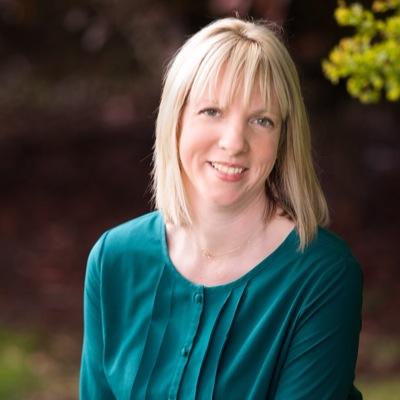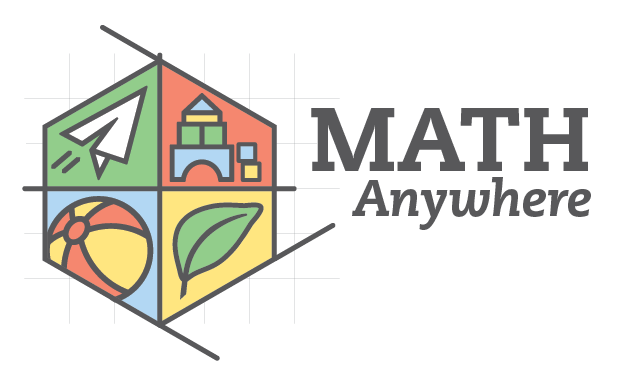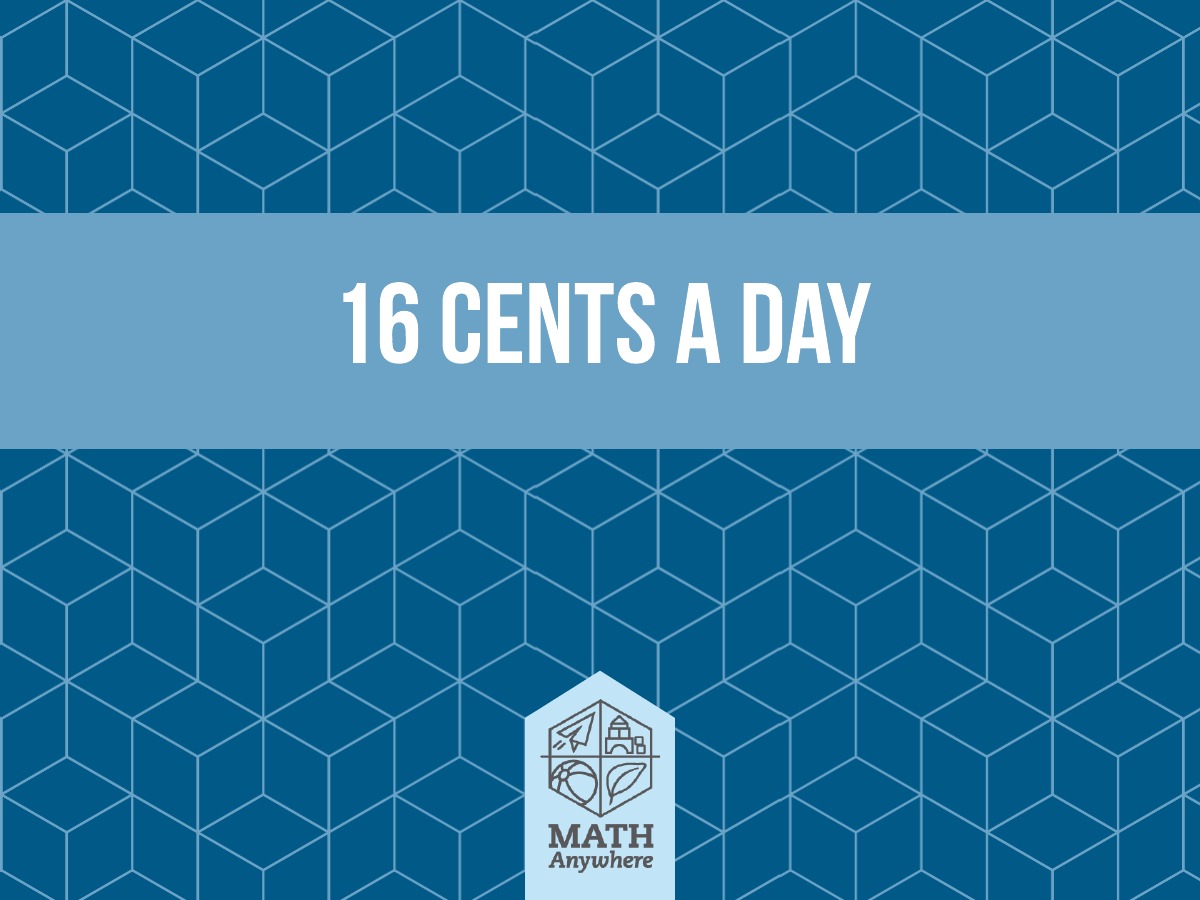And then there are moments like this summer morning when my son is idly lounging on the couch watching TV:
Dad: “I hear they have a lot of golf gear at Costco. But, we aren’t members any more, right?”
Mom: “Right, but it’s only $60 for a membership. It might be worth it to join again.”
Dad: “That’s alright. I can shop somewhere else.”
Voice from the couch: “It’s only 16 cents a day, Dad.”
Mom: [pauses to do the math] “Uh, yeah, just 16 cents a day. Seems reasonable.”
I resist the urge (and it’s a strong one) to ask how he decided it was 16 cents a day. Did he think about 60 x 100, and then divide by 365? Did he divide $60 by 12 first? I don’t probe, I just notice. And move on.
I wouldn’t have considered prompting my son to solve this problem. In fact, I had barely noticed there was a math problem involved. The choice to take-up this problem belonged to him, so there was no resistance. While I don’t imagine I will stop sharing problems I find relevant or interesting, nor will I start readily providing answers for questions I know my son can answer himself, I am trying to be mindful of following his lead. Letting kids choose their own moments to math seems important. Especially in the summer.

Molly Daley
Molly Daley is a Regional Mathematics Coordinator at ESD 112 in Vancouver, WA. She started the Math Anywhere! project to help children and their grown-ups experience the creative and playful side of mathematics. As soon as she learned there was more to math than the rules she memorized in school, Molly was hooked. She believes math is expansive and she likes helping people recognize their own mathematical connection.

